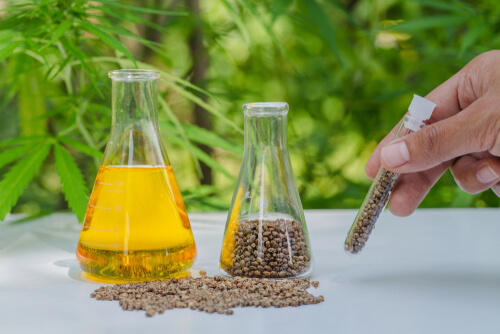
Cannabidiol (CBD) is a popular compound that is widely used for its various health benefits. However, CBD’s low bioavailability poses a significant challenge for manufacturers looking to create effective products. Microencapsulation is a technique that can help improve the bioavailability and stability of CBD products. In this guide, we will discuss CBD microencapsulation and its benefits.
What Is Microencapsulation?
Microencapsulation is a process in which tiny particles or droplets of material are encapsulated within a larger matrix to form microcapsules. The microcapsules are designed to protect the encapsulated material from environmental factors such as moisture, light, and heat. Microencapsulation is used in a variety of industries, including pharmaceuticals, food, and cosmetics, to improve product stability and efficacy.
What Is CBD Microencapsulation?
CBD microencapsulation involves encapsulating CBD within a microcapsule to protect it from degradation and increase its bioavailability. CBD microencapsulation can be performed using a variety of materials, including liposomes, nanoparticles, and microspheres.
Benefits Of CBD Microencapsulation
Improved Bioavailability
CBD has a low bioavailability, which means that a significant amount of the compound is lost during digestion and metabolism. CBD microencapsulation can improve bioavailability by protecting the compound from degradation and increasing its absorption in the body. This means that less CBD is needed to achieve the desired effects, making products more cost-effective.
Stability
CBD is sensitive to environmental factors such as light, heat, and moisture, which can cause it to degrade over time. Microencapsulation can protect CBD from these factors, increasing the product’s shelf life and ensuring that it retains its potency.
Targeted Delivery
CBD microencapsulation can be designed to release the compound in a specific part of the body, making it an ideal method for targeted drug delivery. For example, microencapsulated CBD can be designed to release the compound in the digestive tract, making it more effective for treating digestive issues.
Versatility
CBD microencapsulation can be performed using a variety of materials, which means that it can be tailored to suit different product formulations and applications. Microencapsulation can be used in a range of products, including capsules, tinctures, and topicals, making it a versatile technique for CBD manufacturers.
Conclusion
CBD microencapsulation is an effective technique for improving the bioavailability and stability of CBD products. By protecting CBD from environmental factors and improving its absorption in the body, microencapsulation can increase the effectiveness of CBD products and make them more cost-effective. CBD microencapsulation is also a versatile technique that can be used in a range of products, making it an ideal solution for CBD manufacturers looking to create effective and stable products.

